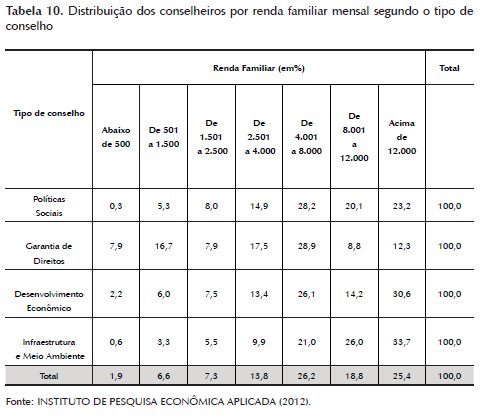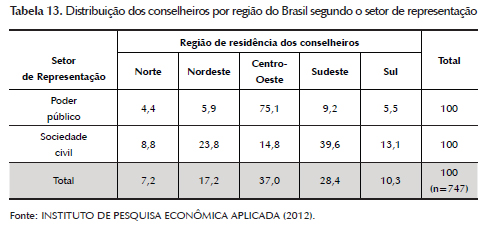Participatory institutions have been described as mitigating factors for traditional political inequalities, since they broaden the access of actors excluded from the formal system. However, they have also borne some criticism, with claims that social and political inequalities are reproduced within them. This paper describes an empirical research on inequalities within the national councils on public policies. For this purpose, we analyze survey data obtained from questionnaires applied to 767 board members from 21 different national councils and 3 national committees. Data analysis focused on inequalities among councilors as to income, education, gender, race/ethnicity, region of residence and sector of representation. The study aimed at identifying if, regarding these six selected dimensions, the councils include actors traditionally excluded from the political process. The analysis revealed a complex context as to the existence of inequalities within the national councils. Through an aggregate view, the councilors' general profile indicates that in average they have both income and education levels substantially higher than the average population. There is, however, important variation between the profiles of board members from national councils of distinct areas of public policy. In some areas, councils present a plural composition, are more inclusive and create new opportunities for access to deliberative spaces.
National councils; Inequality; Political inclusion















